A Groundbreaking Forest Field Workshop in India Explores How Climate Change Affects Photosynthesis in Tropical Trees
Sirsi, Karnataka, India | April 30 – May 3, 2025
When Science Meets Forests
In the emerald folds of the Western Ghats—a region older than the Himalayas and more biodiverse than most tropical rainforests—scientists and students gathered under the canopy to tackle one of the most urgent questions in plant ecology: How do trees respond to rising temperatures?
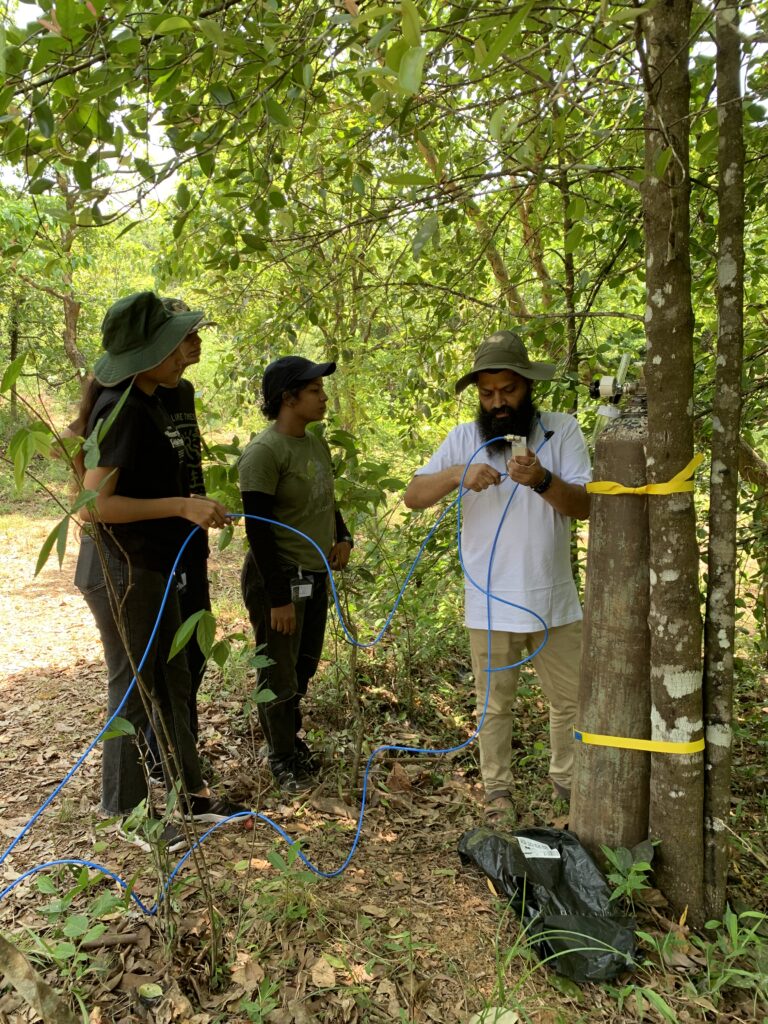
The “Leaves Under Heat” workshop, held from April 30 to May 3, 2025, brought together ecologists and educators from Sweden, and students from across India to explore the temperature sensitivity of photosynthesis—the vital process by which leaves breathe life into forests.

Organized by the Plant Ecology and Evolution Program of Uppsala University, Sweden, in collaboration with IDSG Government College, Chikkamagaluru, and the Sahyadri Wildlife and Forest Conservation Trust, Sirsi, this hands-on field training was funded by the Swedish Phytogeographical Society. The event was hosted at Sayimane, a forest eco-campus nestled in Sirsi, Karnataka.
Science in the Wild: What the Workshop Delivered
Over four immersive days, participants worked directly in tropical forests, learning to measure leaf-level gas exchange and photosynthetic thermal tolerance—both crucial to understanding how forest trees will fare in a warming climate.
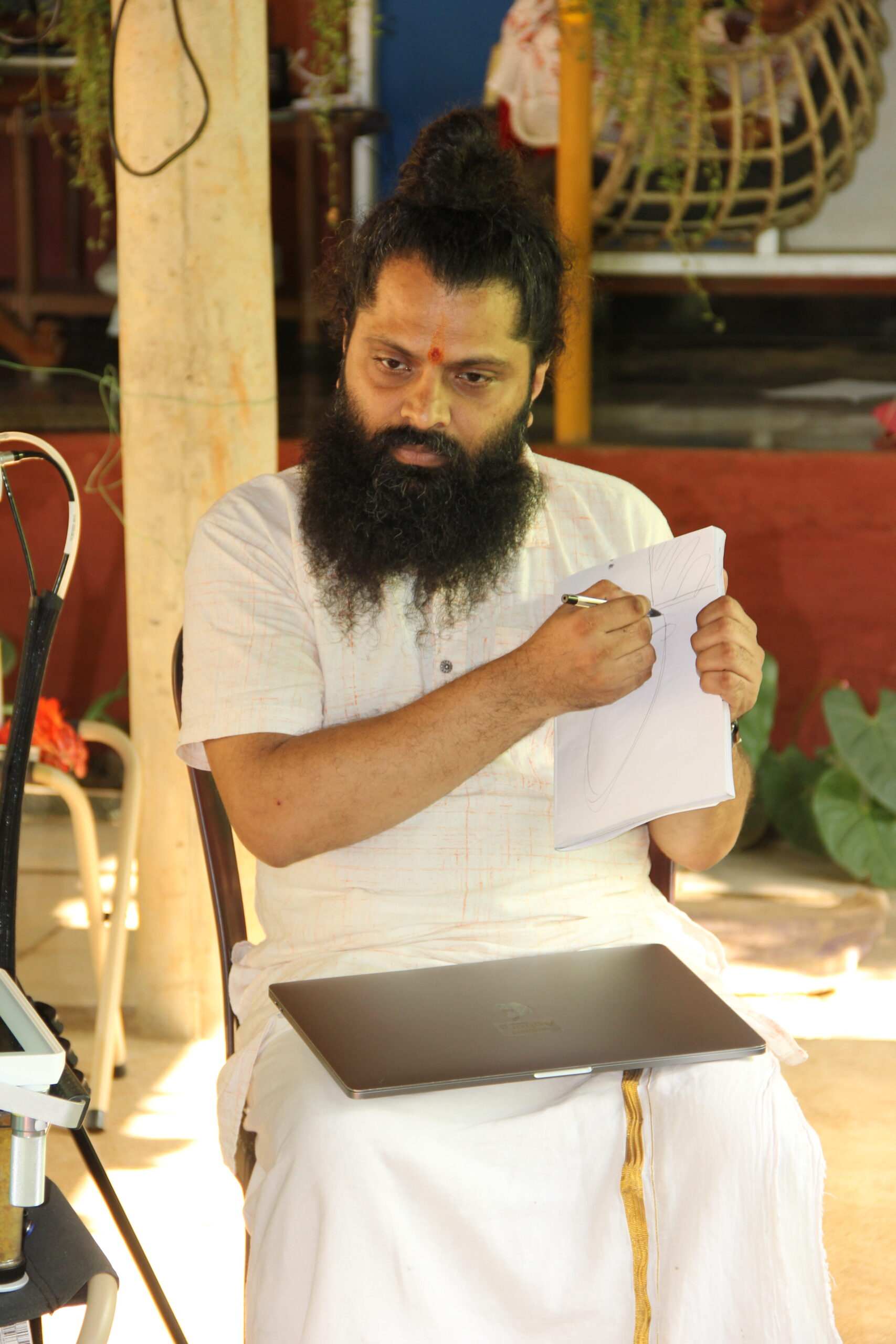
“If we want to predict forest futures, we must measure how leaves handle the heat, and how photosynthesis, the largest biological process on planet earth is sensitive to heat”
– Dr. Rakesh Tiwari, Wenner-Gren Postdoctoral Fellow, Uppsala University
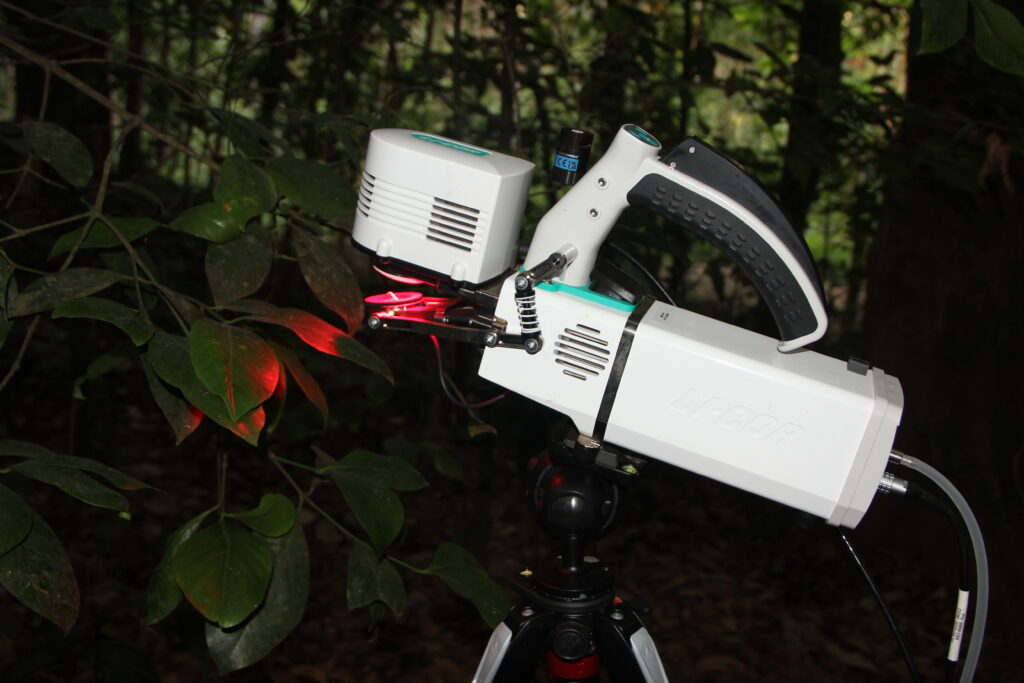
Using high-precision instruments like Infrared Gas Analyzers (IRGA) and chlorophyll fluorometers, students and researchers recorded photosynthetic rates, respiration, and thermal thresholds of native trees such as Terminalia, Ficus, Artocarpus, and Syzygium. They learned how leaves respond to light, humidity, and rising temperatures—and what happens when they don’t.
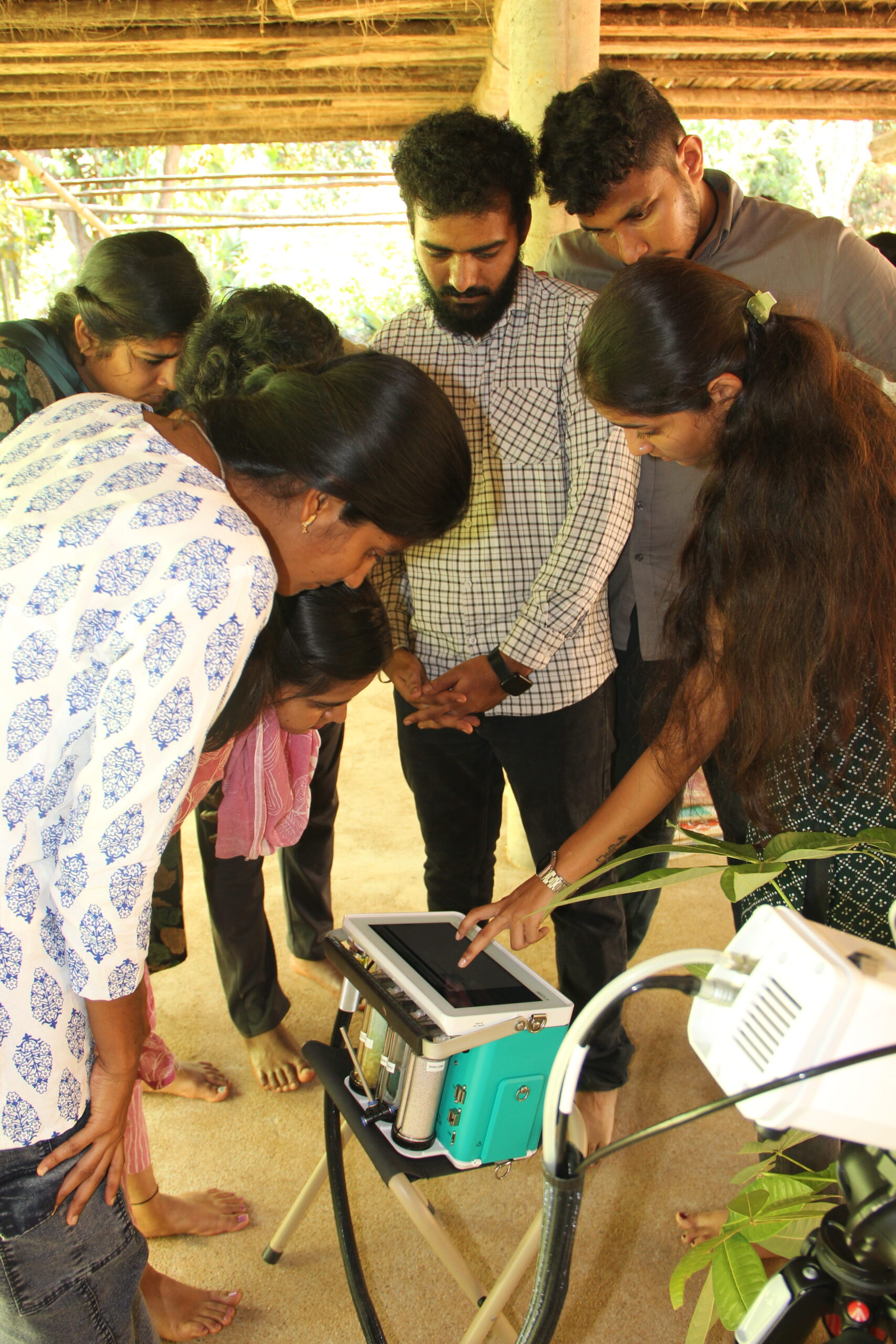
Sayimane: Learning in the Lap of Nature
Set in a restored forest patch, Sayimane is more than just a venue – it’s a forest classroom. Participants stayed on-site, waking to birdsong and dining on locally sourced organic food. Every moment became part of the learning process, whether during sunrise forest walks or late-night data analysis under the stars.

“When you sleep under the same canopy you’re studying, you gain a different kind of insight,”
– Balachandra Hegde, Conservationist & Trustee, Sahyadri Wildlife and Forest Conservation Trust
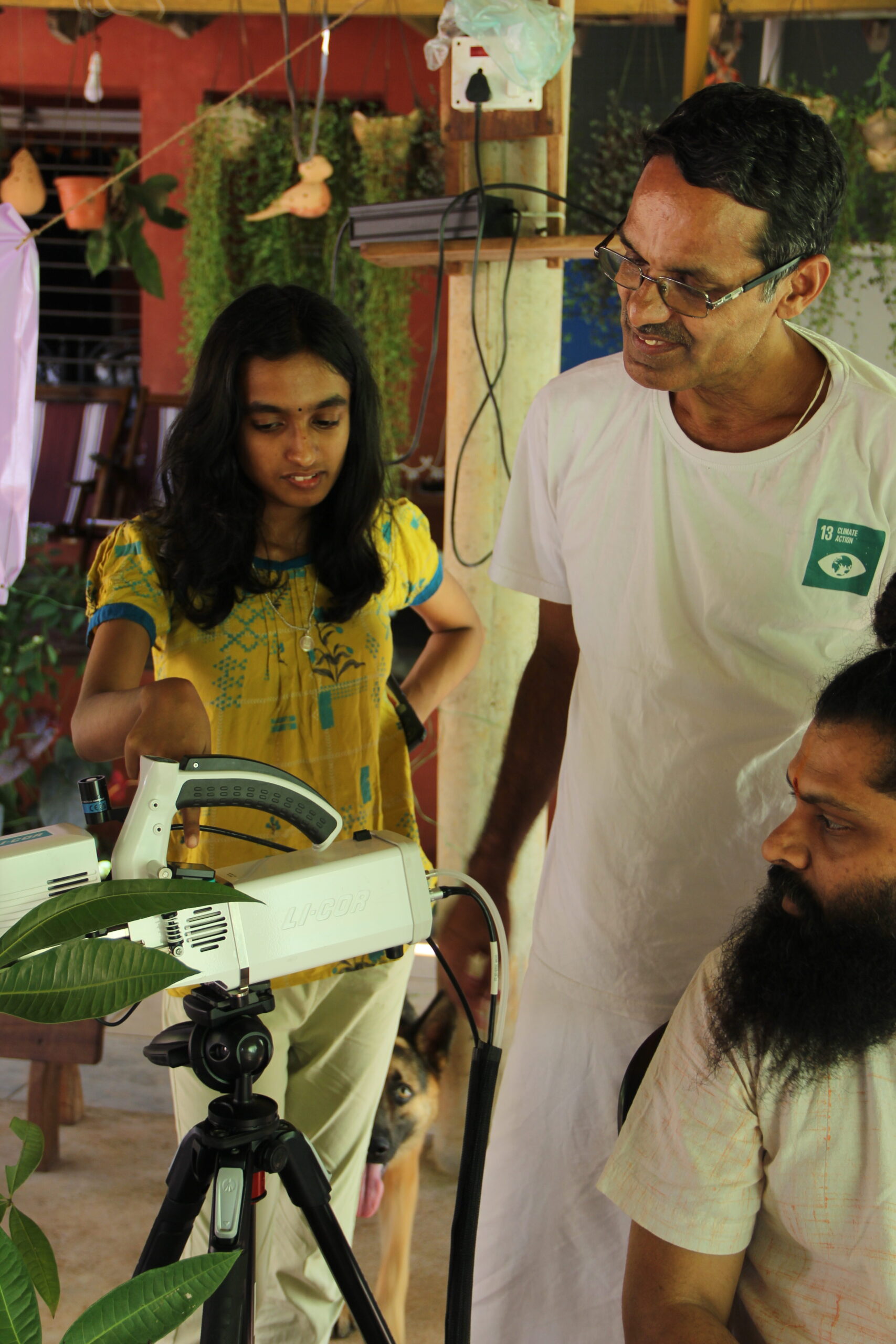
Evening sessions ranged from lectures on plant physiology and climate modelling to open discussions on science communication and conservation challenges in the Western Ghats.
The Curriculum: Deep Dive Into Leaf Life
The workshop curriculum focused on two advanced research techniques:
1. Gas Exchange Measurements
Participants learned to assess photosynthetic efficiency in real time using IRGAs. These tools allowed them to observe how much CO₂ a leaf absorbs and how environmental conditions impact its performance.

2. Photosynthetic Thermal Tolerance Testing
Through thermal ramping and chlorophyll fluorescence, attendees examined how photosynthesis degrades under rising temperatures. By identifying T₅₀—the temperature at which photosynthetic performance drops by 50%—they gained insight into species’ heat resilience.
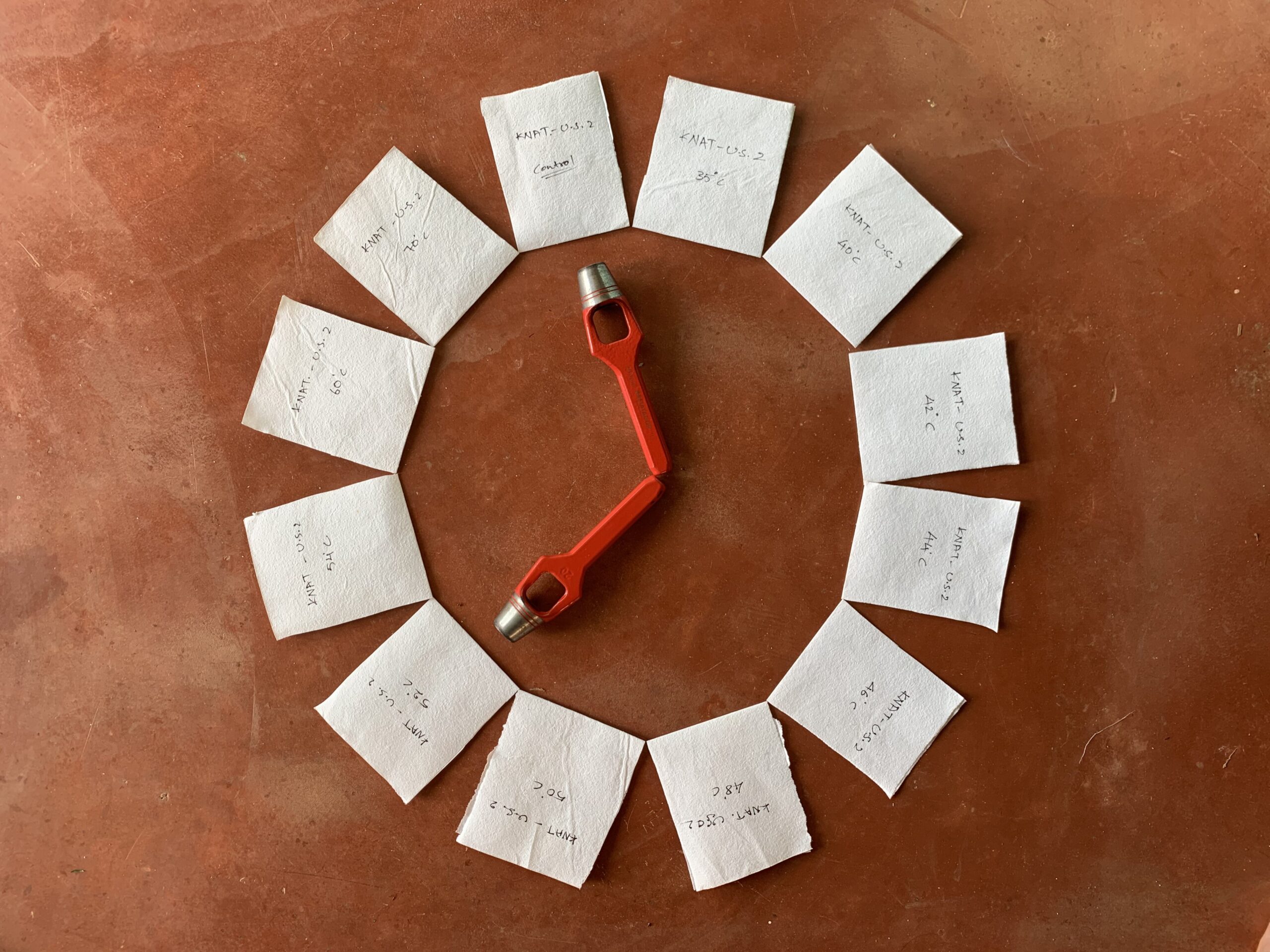
Additional sessions covered:
- Trait-based ecology and its role in conservation
- Practical data recording and field ethics
- Climate communication for policymakers and communities
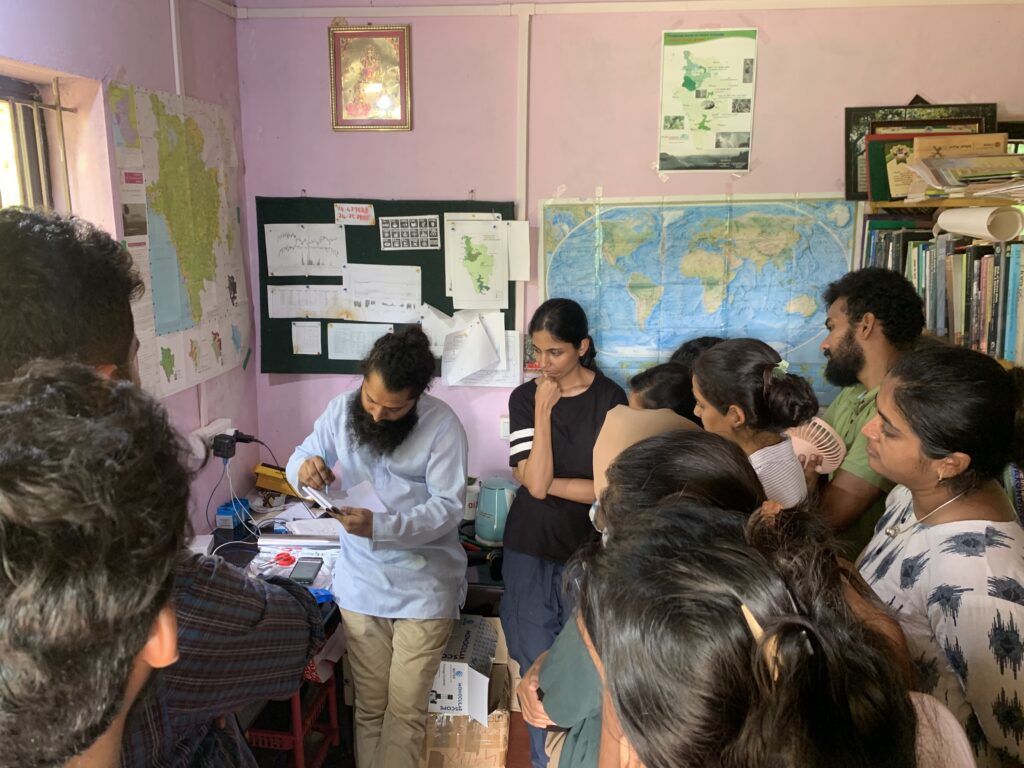
Bridging Borders, Building Knowledge
The Leaves Under Heat workshop was a vivid example of South-North academic collaboration. Participants from Indian institutions and Swedish university worked shoulder-to-shoulder, exchanging knowledge, methodologies, and ideas.
BSc/MSc students—many studying botany, forestry or pursuing postgraduate studies-gained hands-on access to research-grade tools rarely available in academic labs. PhD/Early-career researchers, meanwhile, were introduced to the complexity of tropical systems and the challenges of fieldwork in diverse, dynamic ecosystems.
Student Voices: A Transformative Experience
Participants described the experience in words like “life-changing,” “empowering,” and “deeply humbling.”

“For the first time, I used scientific tools to study real trees – not in a lab, but in the wild,”
– Prajna Naik, M.Sc. student from Forestry, Sirsi, Karnataka, India.
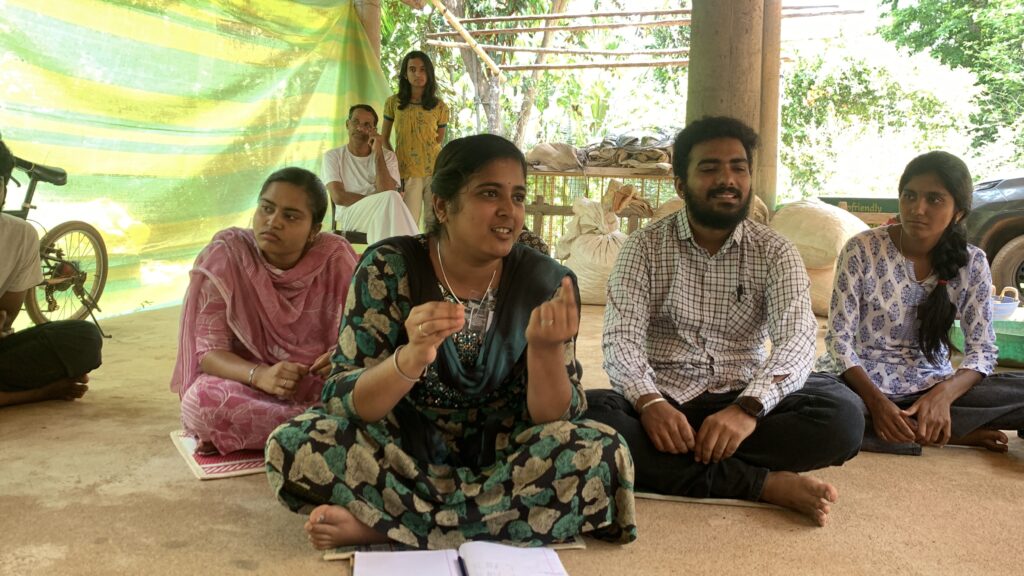
“The workshop on photosynthesis measurement was insightful and hands-on, deepening my understanding of plant physiology and thermal tolerance, and sparking a strong interest to learn more,”
– Pooja G R, M.Sc. student from IDSG Government College, Chikkamagaluru, Karnataka, India.

“The workshop was a valuable experience—I gained insights into photosynthesis rate and thermal tolerance, which will benefit our project. Grateful for the guidance and expertise that truly made a difference,”
– Supritha Bai N, M.Sc. student from IDSG Government College, Kuvempu University, Karnataka, India.

“This four-day workshop was my first—and truly the best! It was an amazing experience filled with learning, inspiration, and meaningful interactions with experts in plant physiology. Heartfelt thanks to everyone who shared their knowledge and made it so special!,”
– Nisarga S.D, M.Sc. student from IDSG College, Chikkamagaluru, Karnataka, India.
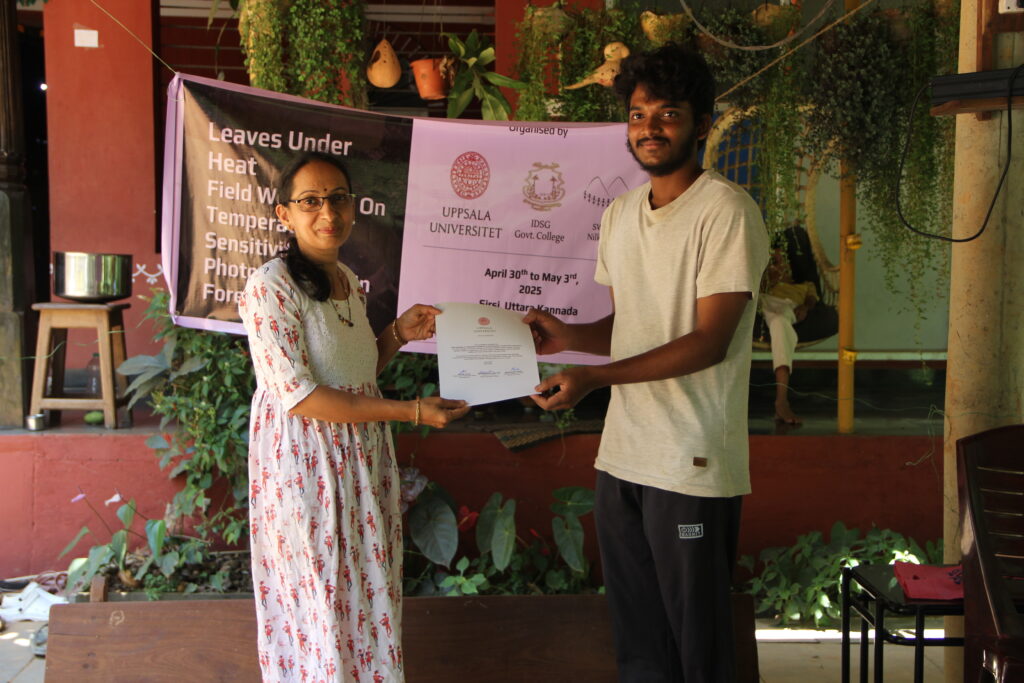
“This workshop gave me an excellent opportunity to improve the knowledge about plant eco-physiology and provides a way to explore it,”
– Vamshi, Participant from Life Science, Bangalore University, Karnataka, India.

“This workshop gave me direction. Now I know, I want to pursue plant eco-physiology,”
– Sathvik M J, M.Sc. student from IDSG Government College, Chikkamagaluru, Karnataka, India.

“The workshop was truly enriching and unforgettable. I’m deeply grateful to Rakesh Sir, Balachandra Sir, Somashekhar Sir, and Ganesh Sir for their warm mentorship and insightful guidance – especially during the powerful session on leaf thermal tolerance. Learning about the IRGA instrument was eye-opening and added immense value to our understanding. A heartfelt thank you to Balu Sir and his wonderful family for their exceptional hospitality and delicious food – it made us feel right at home. This experience will stay with me for a long time!,”
– Harshith C V, M.Sc. student from IDSG Government College, Chikkamagaluru, Karnataka, India.
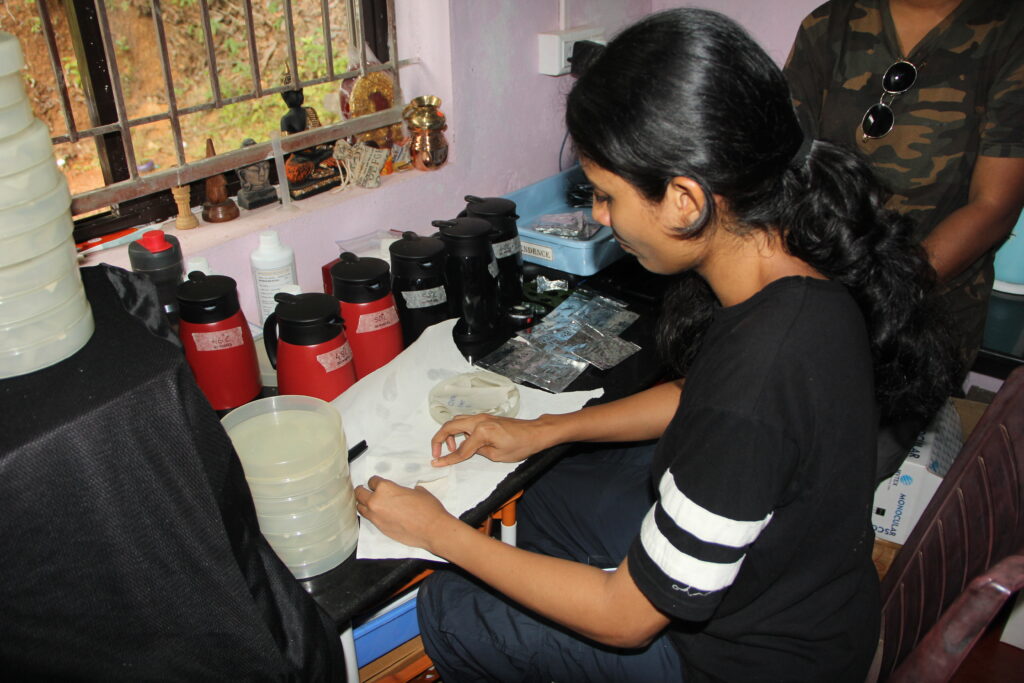
“I had the valuable opportunity to engage with experts in eco-physiology, gaining fresh insights and inspiration. Their visionary approach to research reshaped my perspective on conservation,”
– Sruthi K, PhD. student, French Institute of Pondicherry, India.
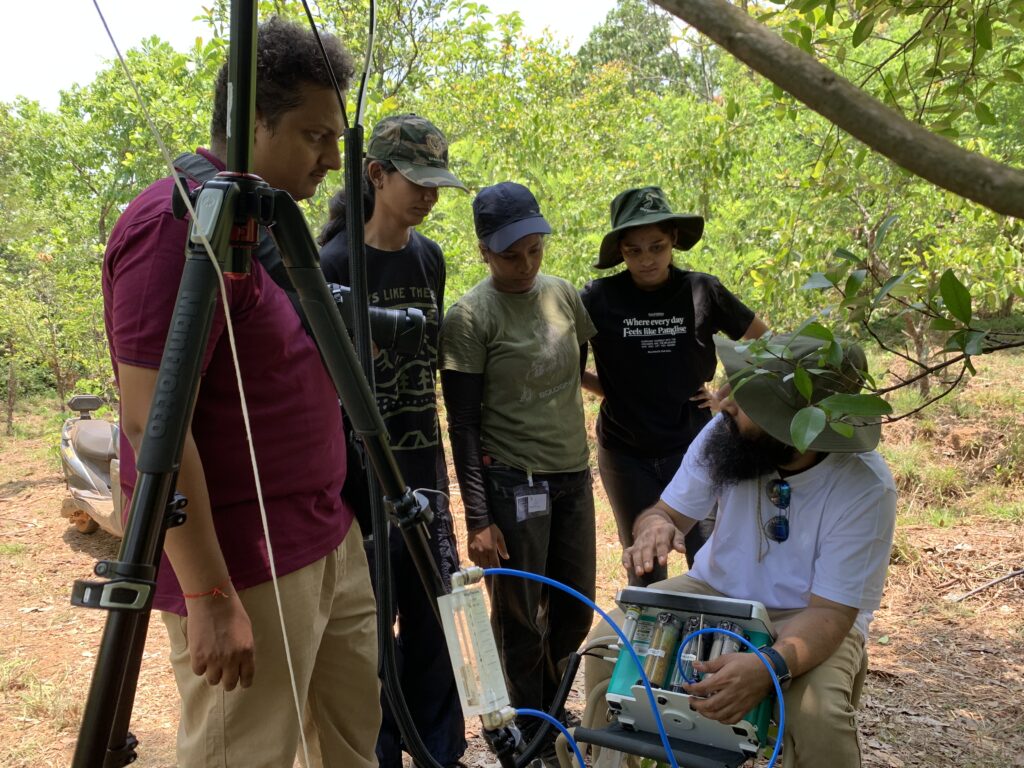
“We learned to analyze thermal tolerance of Photosystem and temperature/light response curves of different forest trees using cutting edge instrument. Dr. Rakesh Tiwari explained it all in such a clear and effortless way! This workshop truly sowed a seed in me to study, learn, and explore more about photosynthesis. Grateful for the hands-on training, insightful sessions, and the spark it has ignited!,”
– Vincy K Wilson, Research Scholar. French Institute of Pondicherry, India.
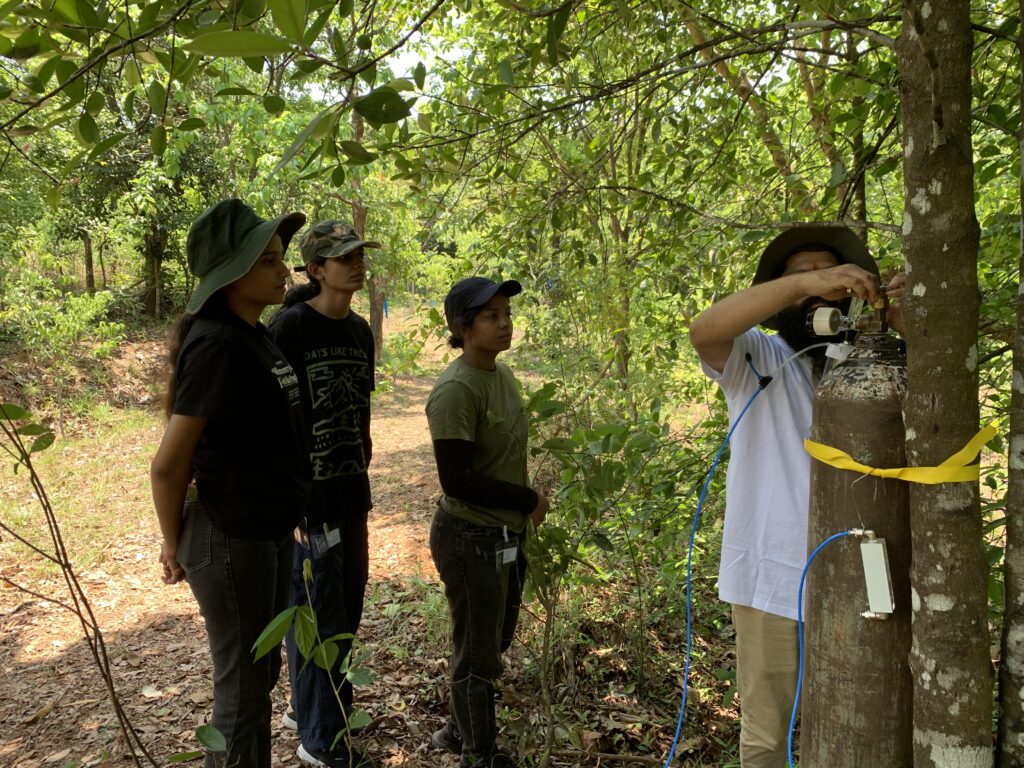
“The workshop was an excellent starting point for aspiring researchers, with clear sessions on leaf thermal tolerance. The hands-on experience with the IRGA, expertly demonstrated and guided was a highlight. Special thanks to Balu Sir and his family for their warm hospitality and delicious food. This workshop was both inspiring and practical – looking forward to more like it!,”
– Pratibha T Bhagawad, Research student, Kuvempu University, Shankarghatta, Karnataka, India.
Team-based projects encouraged collaboration across disciplines, backgrounds, and institutions. The final day featured presentations where students shared results from their mini-research projects, offering insights into species-specific responses to heat and raising questions for future investigation.
Future Horizons: What’s Next?
The success of Leaves Under Heat has sparked interest in making it an annual event, potentially expanding to other tropical and subtropical forest sites across India and Southeast Asia.

The organizing team is also exploring ways to:
- Develop long-term monitoring programs for tree physiological traits
- Build a network of early-career plant ecophysiologists in South Asia
- Create open-access field manuals and training videos
- Integrate this research into community forest management practices
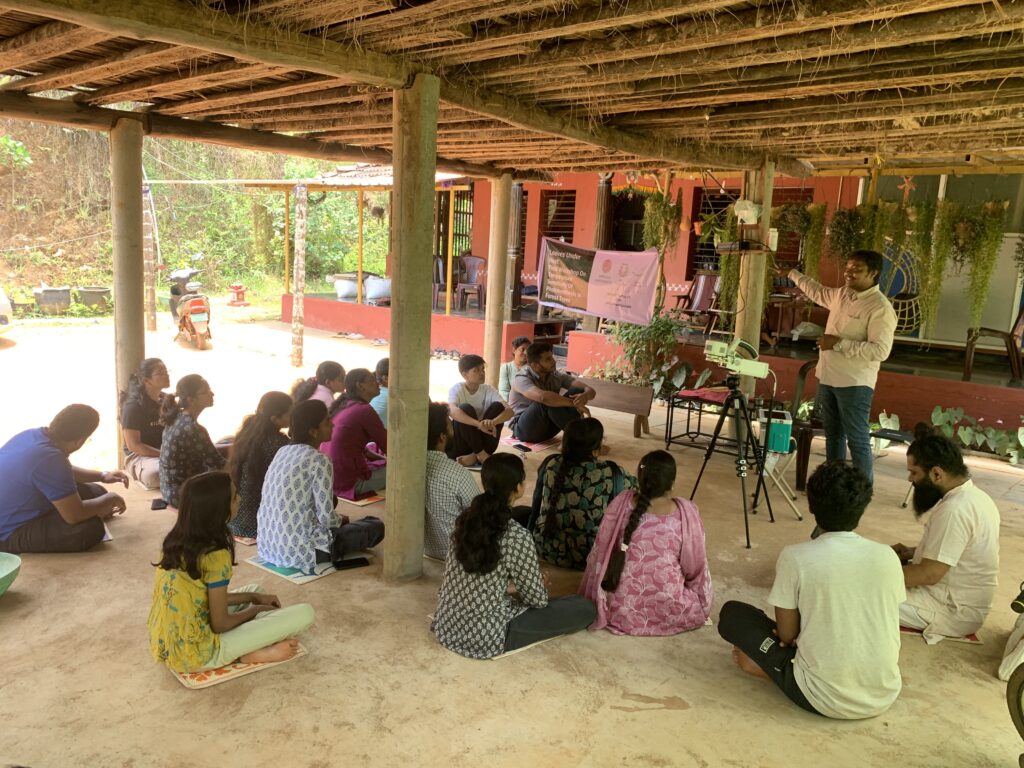
“Photosynthesis is not just a scientific concept – it’s a survival strategy. For forests. For people. For the planet,”
– Dr. Somashekhara Achar, IDSG Government College
Workshop at a Glance
| Event | Leaves Under Heat: Field Workshop on Temperature Sensitivity of Photosynthesis in Forest Trees |
|---|---|
| Dates | April 30 – May 3, 2025 |
| Location | Sayimane Eco-Campus, Sirsi, Uttara Kannada, Karnataka, India |
| Organizers | Uppsala University (Sweden), IDSG College (Chikkamagaluru), Sahyadri Trust (Sirsi) |
| Lead Facilitators | Dr. Rakesh Tiwari, Dr. Somashekhara Achar KG, Balachandra Hegde |
| Funding | Swedish Phytogeographical Society |
| Participants | Early-career researchers, MSc/PhD students, conservationists |
| Key Topics | Photosynthetic gas exchange, thermal tolerance, ecophysiology, conservation, climate change |
🪴 Final Thought
In a world grappling with ecological uncertainty, workshops like Leaves Under Heat provide a rare combination of cutting-edge science, immersive learning, and cross-border solidarity. They remind us that sometimes, the best way to understand climate change is not from a screen or a lab bench—but by listening to leaves in a living forest.

“The forest is both the teacher and the textbook. We just have to pay attention.”
— Participant quote from the closing circle


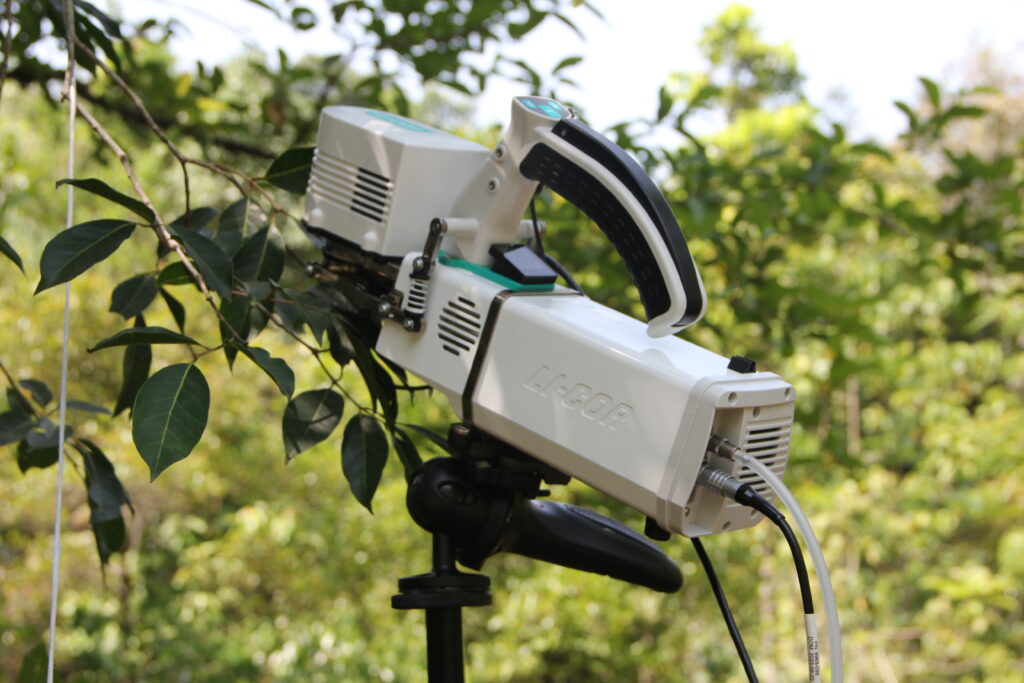

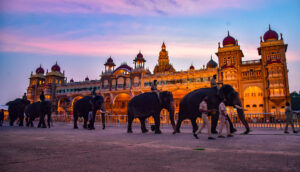


Its a good workshop we learn so many things from this about plant ecology…
“My first workshop is best workshop forever”
Its a spark workshop for every one in this workshop.
Nisarga S.D
Msc student I D S G college chikkamagluru.
Thank you for the given opportunity for my college students to participate in this workshop. Thanks to Dr Rakesh and Dr Somashekhar. Hope in future days also we will be together in this knowledge journey. I would like to thank all who are all supported our students and staff. Thank you all.
Dr. Pushpa Bharathi, Principal, I D S G Government college, Chikkamagaluru